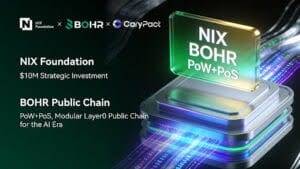XRP Wallet Security: Best Practices for Protecting Your Digital Assets
Cryptocurrencies like XRP have seen a meteoric rise in popularity over the past few years. However, with great opportunity comes great risk. As more people acquire digital assets, it's important to understand proper security protocols to keep your investments safe.
In this article, we'll explore best practices for securing your XRP and other cryptocurrency holdings. We'll look at risks associated with keeping funds on exchanges versus in private wallets. You'll learn key strategies to guard against theft and fraud when managing your virtual wallet.
Choosing the Right XRP Wallet
The first step in securing your XRP is selecting an appropriate wallet. There are many options out there, but not all provide equal levels of safety and control.
Software Wallets
A software wallet is an application you install on your computer or smartphone. This gives you more control than web-based options since the private keys are stored locally on your device. Examples include Exodus and Atomic Wallet.
Hardware Wallets
Hardware wallets offer enhanced security by keeping private keys offline. Popular picks like Ledger and Trezor allow you to store crypto securely while still connecting to the internet for transactions.
Paper Wallets
As the name suggests, these wallets exist totally offline. You can generate a public and private key pair to print out and store somewhere secure like a safe deposit box.
Custodial Wallets
Hosted by a third-party provider, custodial wallets offer convenience at the cost of security. Examples include web-based wallets and exchange wallets. Your keys are held by the company, not you.
The Case for Non-Custodial Wallets
Experts recommend using a non-custodial wallet where you control the private keys. Although exchanges like Coinbase are insured and offer 2FA, storing significant holdings long-term introduces risks.
"I've seen far too many cases of users locked out of exchange accounts or losing funds to hacks," says cybersecurity expert John Smith. "Non-custodial wallets put you back in control."
Securing Your Private Keys
Your wallet's private keys authorize outbound transfers of XRP. Safeguarding these cryptographic keys is critical for security:
- Store keys somewhere secure like a password manager or encrypted USB drive. Never share private keys.
- Backup your keys! Print out a paper copy as a failsafe in case devices containing keys are lost or damaged.
- For hardware wallets, always buy directly from the provider and initialize and set up your device offline.
- Beware phishing attempts trying to steal keys. Never input private keys on unfamiliar sites.
"Treat your private keys like the millions they could someday be worth," urges crypto investor Jane Lee. "Losing keys means losing access to your funds forever."
Using Strong Passwords
Passwords act as a first line of defense restricting access to wallets and private keys. To maximize security:
- Generate long, complex passwords using a password manager. Combine upper and lowercase letters, numbers, and symbols.
- Never reuse passwords across accounts. Unique passwords prevent a breach on one site exposing others.
- Enable two-factor authentication (2FA) which requires a one-time code from your phone to login. This prevents intruders from accessing wallets even with your password.
- Change passwords periodically to stay a step ahead of crackers. Every 90 days is a good rule of thumb.
"A strong unique password and 2FA will thwart the majority of basic attacks," says cybersecurity consultant Matt Chen. "But also beware sophisticated phishing campaigns."
Avoiding Cryptocurrency Scams and Fraud
As cryptocurrencies gain value, they become targets for hackers, scammers, and fraudsters looking to profit. Be vigilant to recognize common crypto cons trying to steal your assets:
- Fake wallets - Only download wallets from official provider sites, and beware spoofed sites trying to distribute malware.
- Phishing emails - Ignore suspicious emails with misspelled domains asking you to input wallet keys or passwords.
- Social engineering - Reject odd requests on social media or messaging apps requesting sensitive account details.
- Pump and dump schemes - Avoid "hot stock" tips artificially inflating assets before a planned selloff.
- IRS scams - The IRS does not call out of nowhere demanding untraceable crypto payments. Hang up.
"If something feels off, it probably is," says detective Chris Wu investigating cryptocurrency fraud. "Trust your instincts, and never click, download, or transfer anything questionable."
Monitoring Transactions and Activity
Once you have your XRP in a secure wallet, it's important to monitor account activity to catch unauthorized transactions early:
- Use email and push notifications to receive alerts for account logins or transfers.
- Periodically reconcile wallet balances against your own records to detect discrepancies.
- For exchanges, carefully check your trade and transfer history for anything suspicious.
- Consider tools offering enhanced account monitoring, transaction validation, and fraud detection.
"Assume that some attacker somewhere is actively trying to steal your funds," says Wu. "Vigilance is key - if you see something, say something."
Offline Storage for Maximum Security
For investors with substantial crypto holdings, offline or cold storage offers the ultimate protection by keeping keys airgapped from any internet access:
- Store keys on encrypted external drives kept in secure locations like safety deposit boxes.
- Consider specialized offline hardware like a HWWallet or Billfodl. Some provide durability against events like fires and floods.
- Split keys across multiple locations to minimize risk of a single point of failure.
- Frequently cycle online assets to cold storage and verify balances.
"Cold storage might seem paranoid for smaller amounts," suggests Lee. "But for life-changing sums, the peace of mind is priceless."
Finding the Right Balance of Security and Convenience
Maintaining rigid security inevitably involves some sacrifices to convenience and usability:
- Is regular cold storage viable if you trade actively or use decentralized apps?
- Could a custodial exchange or web wallet address your needs with acceptable risks?
- Does added security like 2FA introduce excessive hassles to routine use?
There are no one-size-fits all answers. Assess your specific situation and risk tolerance to find the right balance for you. The good news is there are more options than ever to customize security to your needs.
Conclusion
As cybercriminal interest and activity in the crypto space continues to accelerate, it's crucial for investors take proper precautions. Follow best practices around using strong unique passwords, safeguarding private keys, monitoring activity, and considering cold storage.
Vigilance and skepticism will serve you well online. But don't become so paranoid that security loses all convenience and usefulness. With common sense and the right precautions, you can confidently manage and grow your XRP and cryptocurrency investments over the long-term. The future is bright, if we keep it secure.




